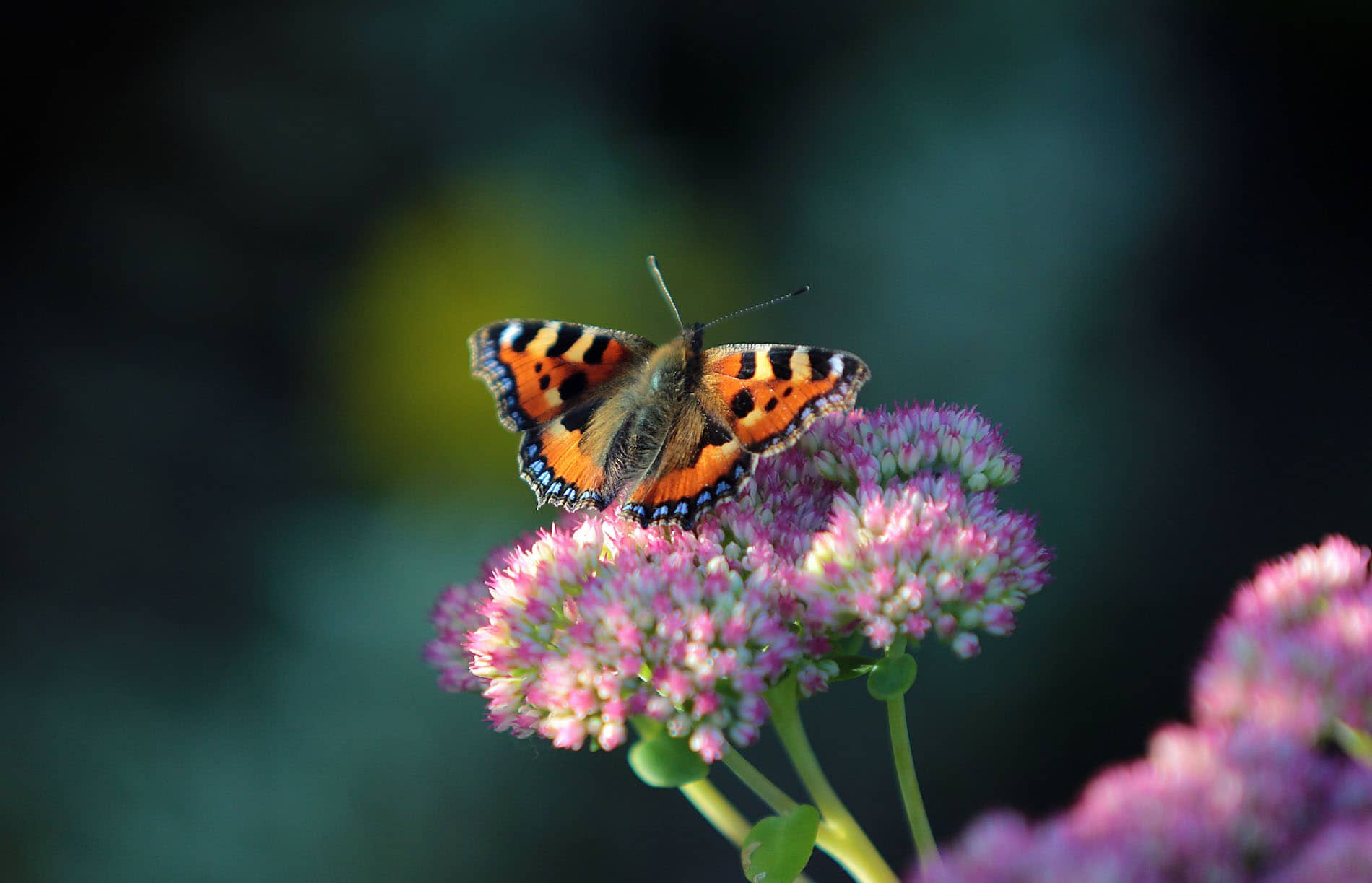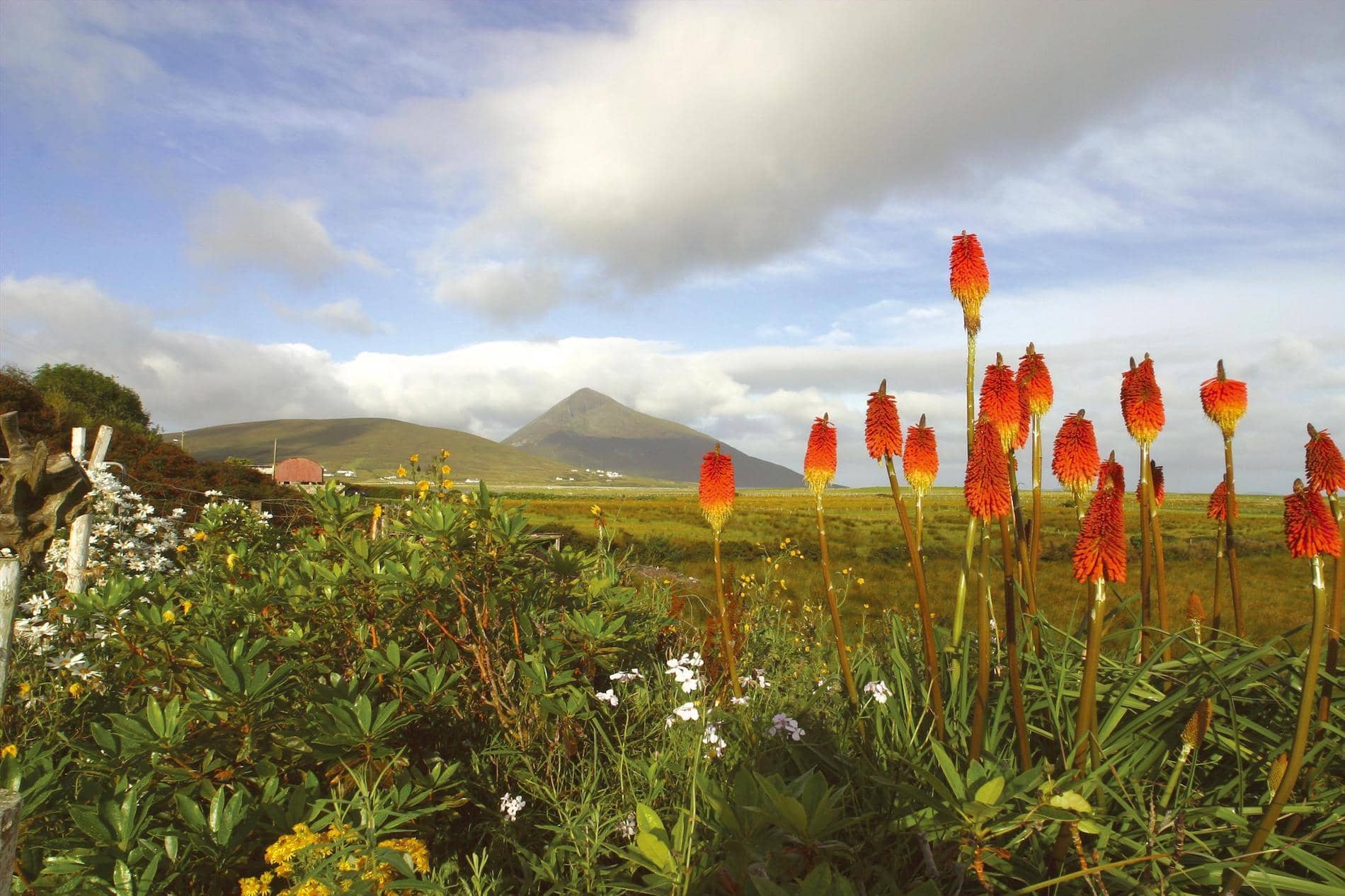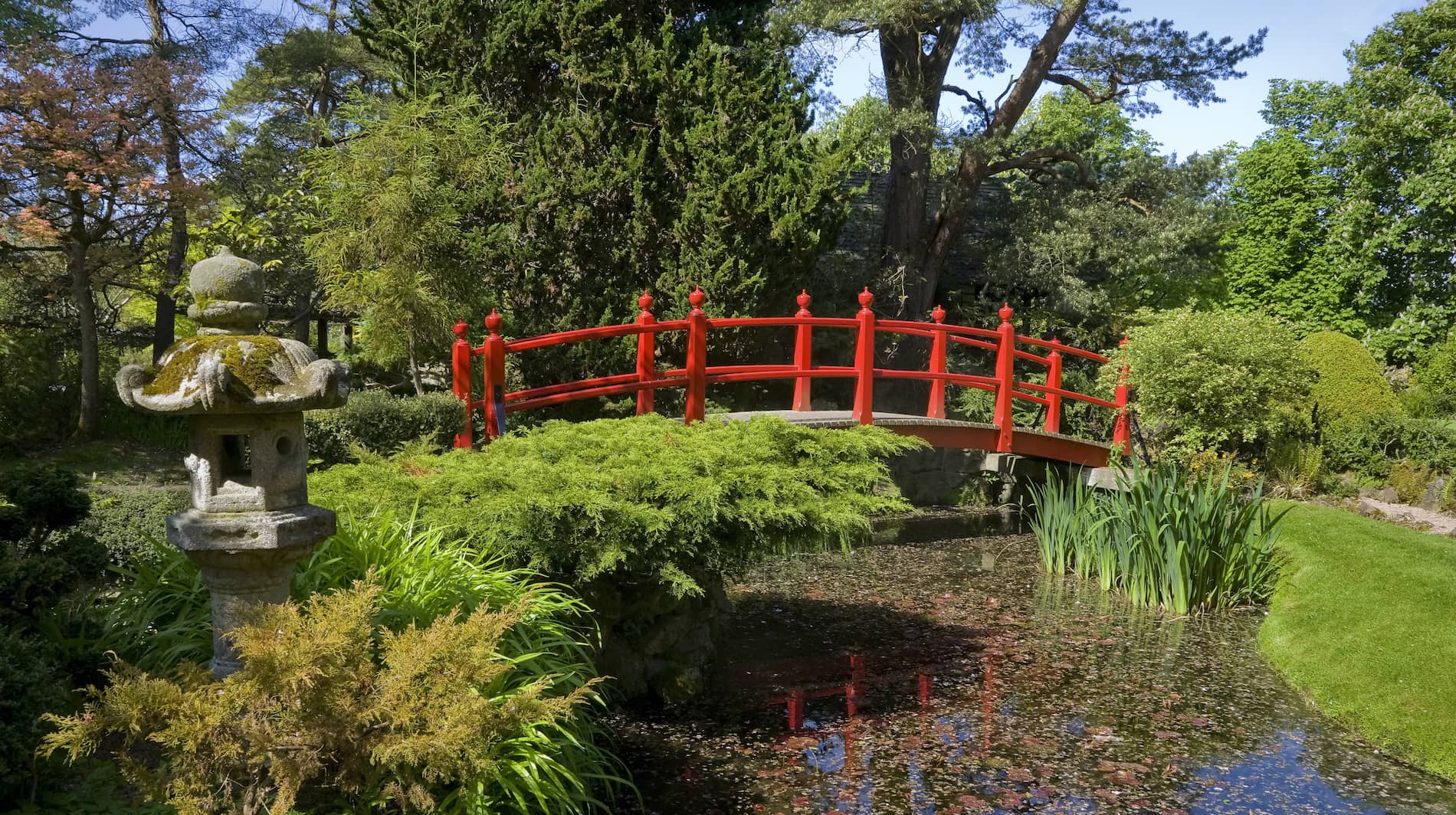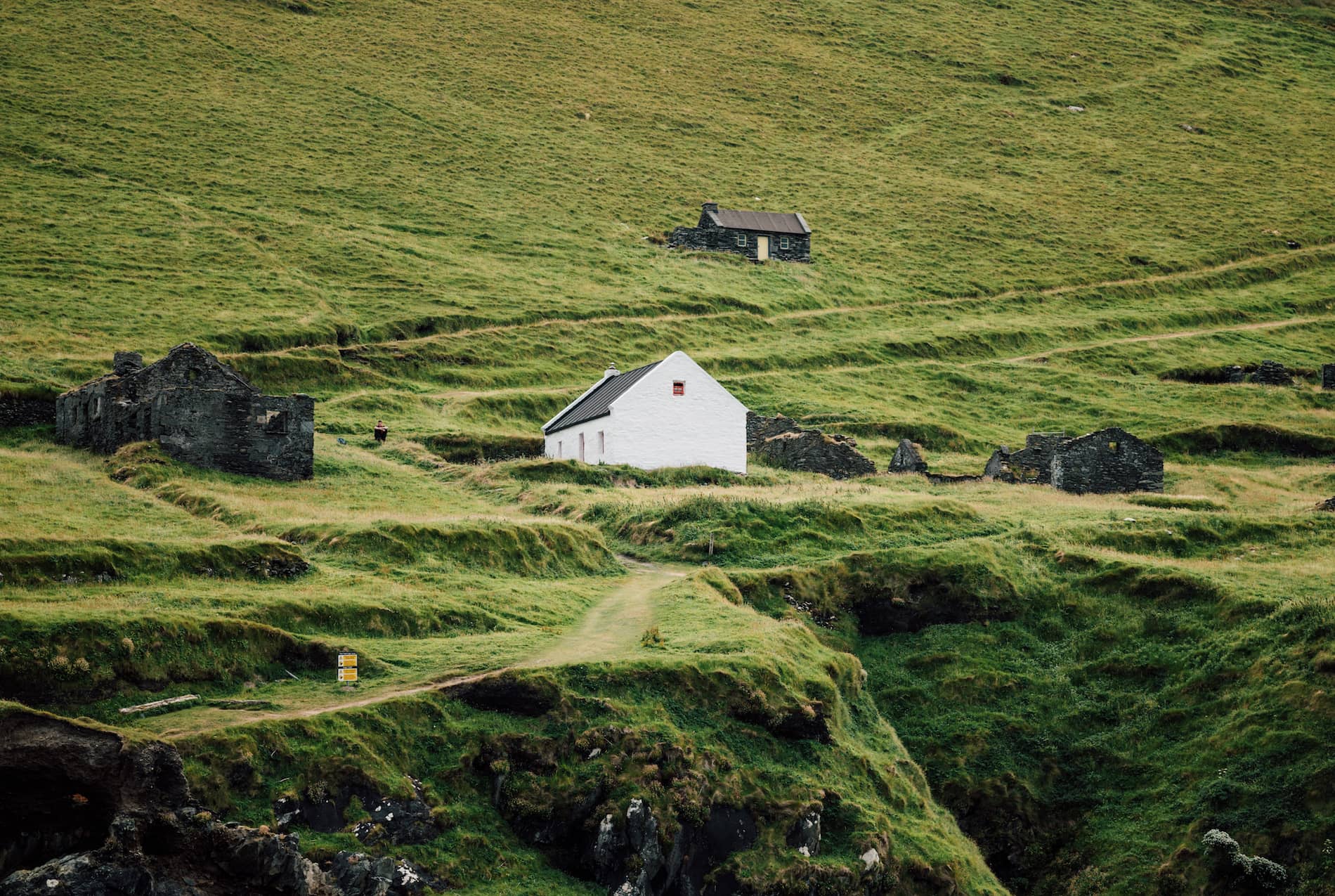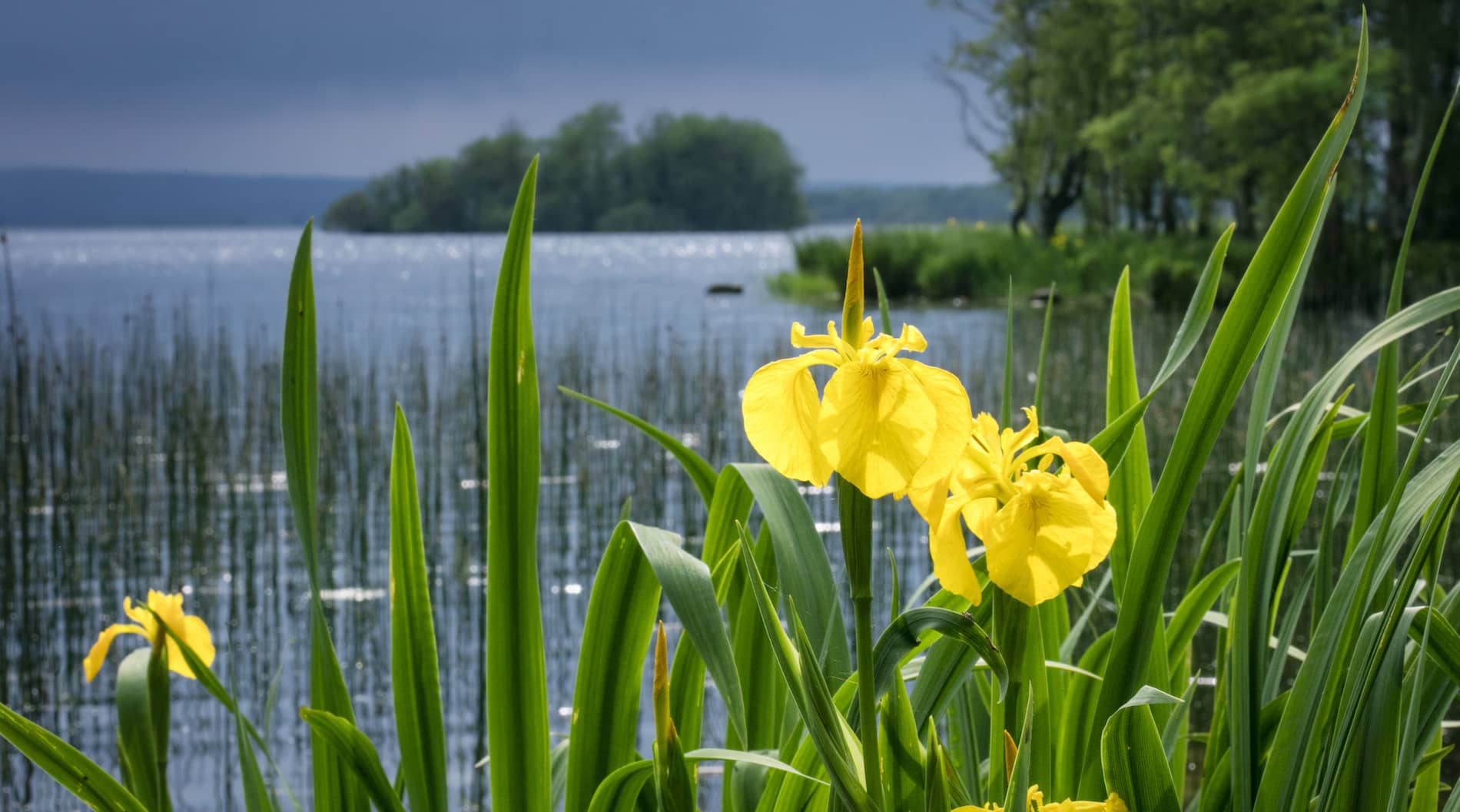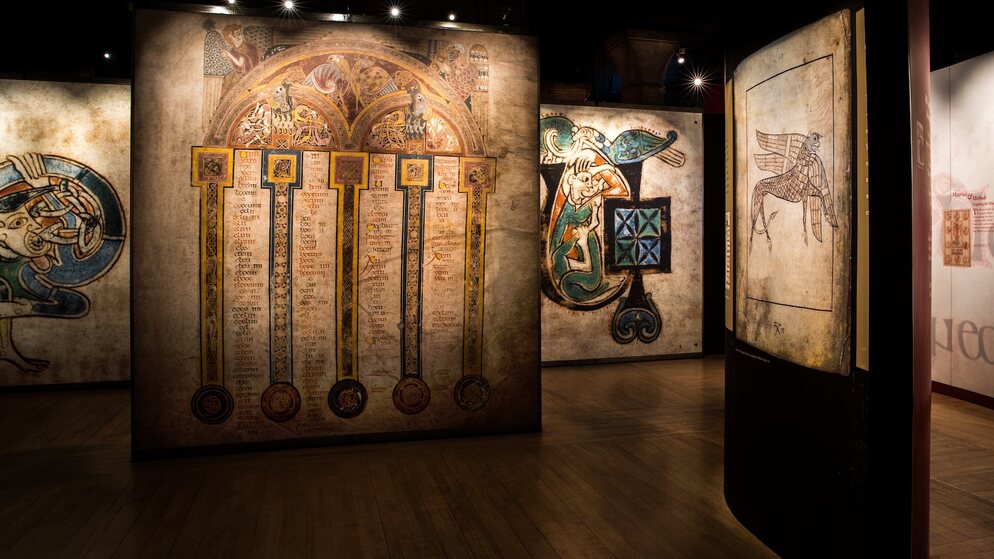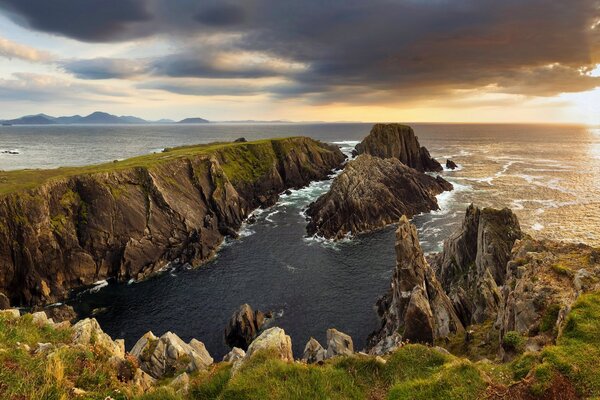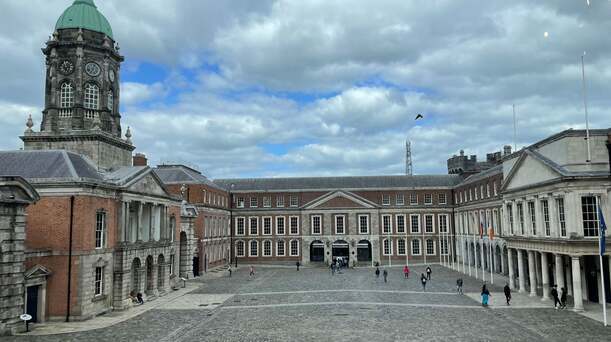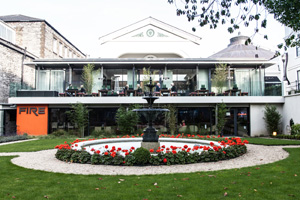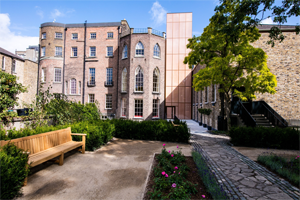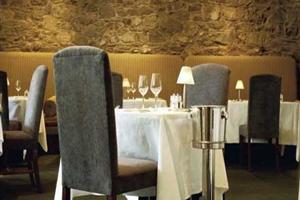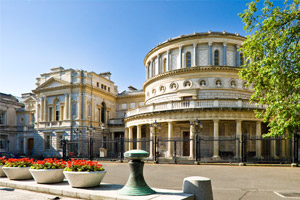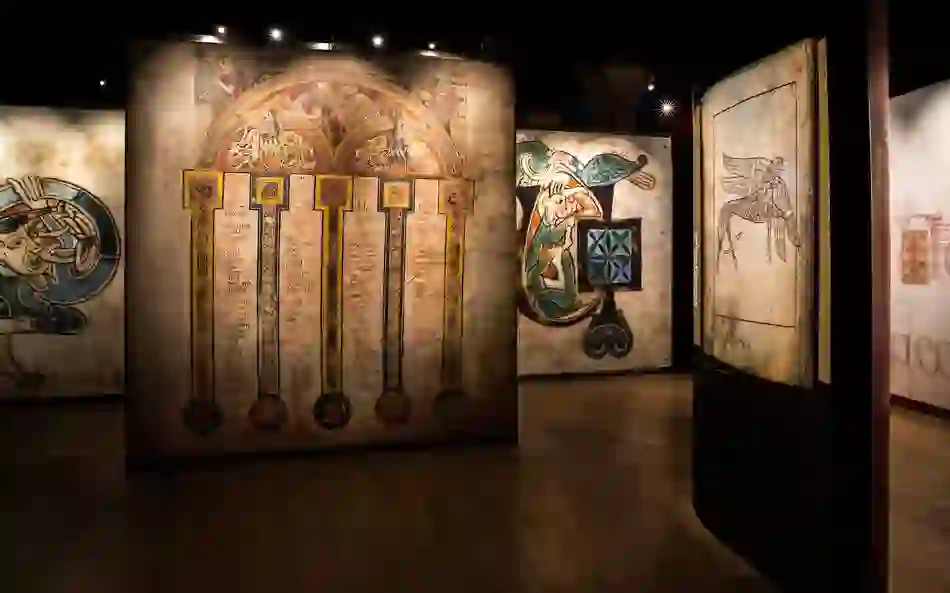
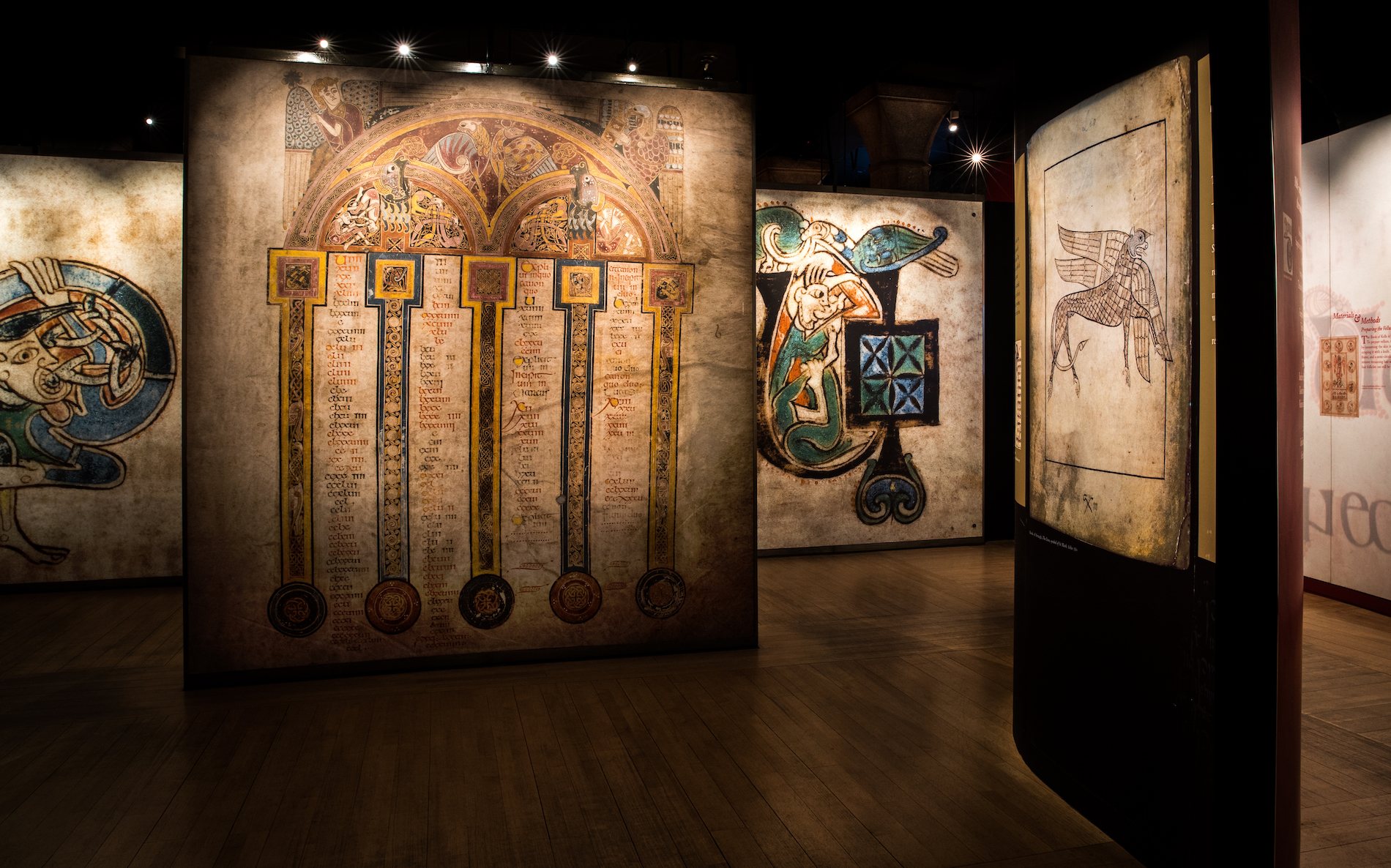
Book of Kells and Trinity College
Right in the heart of Dublin – in the prestigious Trinity College – is a jewel of Ireland’s cultural heritage: the Book of Kells.
It’s one of the most famous manuscripts in history, a UNESCO Memory of the World item, and is described by the 11th century Annals of Ulster as “the most precious object in the Western world”.
This exquisitely illuminated manuscript contains the four Gospels of the New Testament in Latin and dates back to around 800AD. Almost every one of its 680 pages features elaborate imagery of mythical creatures, wild and domestic animals, Christian iconography and Celtic symbols.
The Old Library at Trinity College, Dublin
A storied history
Scholarly opinion differs about the book’s early history but most agree that it was likely begun on the remote Scottish island of Iona and finished in the monastery at Kells in County Meath, where it was brought in 806 by monks fleeing Viking raids on Iona.
And there it stayed until the 1650s, a time of great political upheaval in Ireland, when it was sent to Dublin for safekeeping, and presented to Trinity College by the Bishop of Meath a few years later.
The book’s history is told in the fascinating Book of Kells Experience, where you can view the precious manuscript before enjoying immersive digital experiences that bring the vivid pages to life. But until you get here to see it for yourself, you can view high-resolution images of each of its pages in the Library’s Digital Collection.

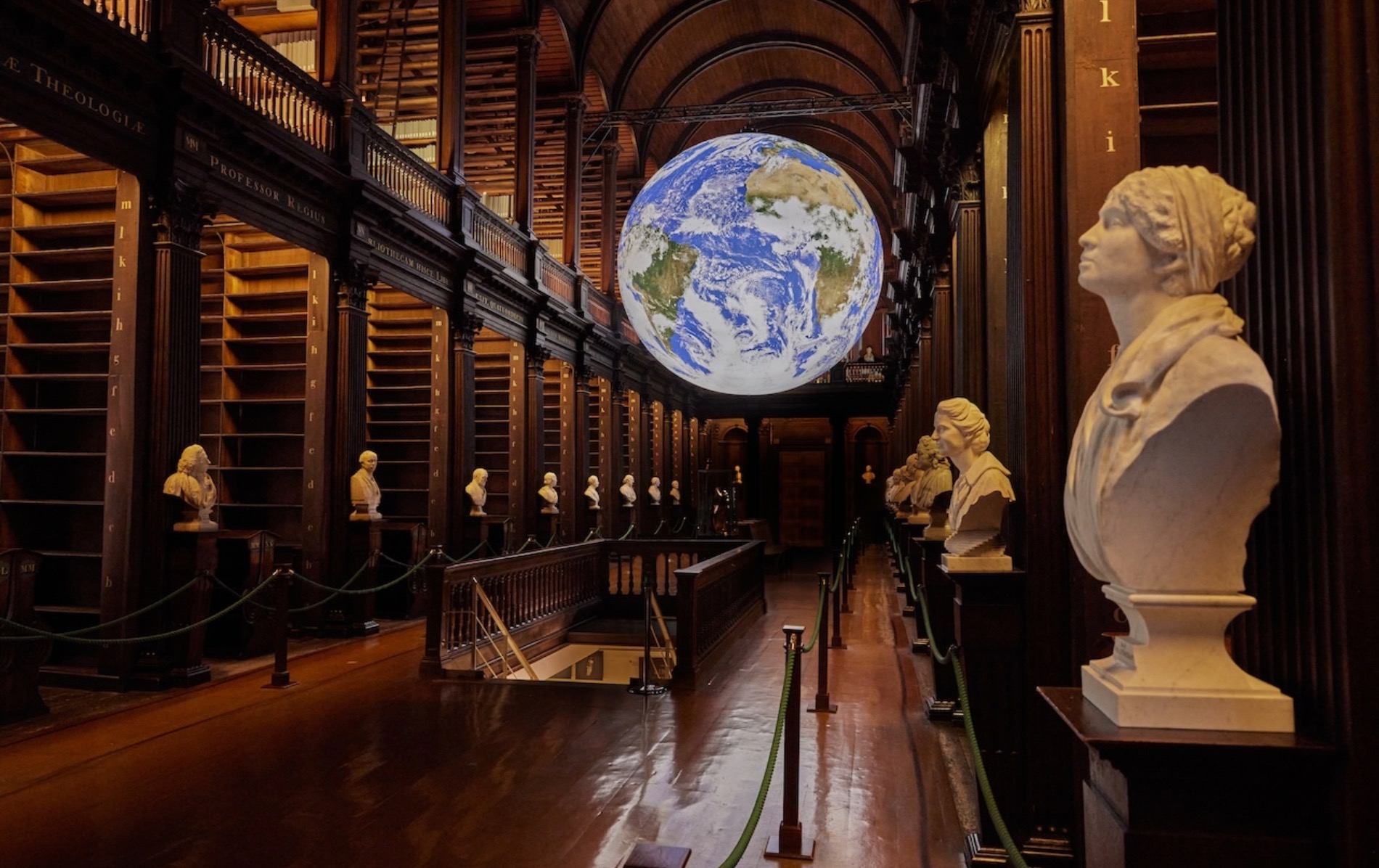
The Long Room, Trinity College, Dublin
A manuscript as impressive as the Book of Kells needs a library to match its majesty – and Trinity’s Old Library is the perfect setting.
The magnificent building was constructed in the 18th century, and houses a vast collection that includes everything from illuminated medieval manuscripts and early printed books to correspondence from playwright and Nobel Laureate Samuel Beckett and pieces of art history.
The main chamber of the Old Library is the magnificent Long Room. This striking 65 metre hall – with a beautiful wooden barrel vaulted ceiling, dark oak beams, and marble busts – is a sight that will linger long in the memory (if you haven’t seen it on Instagram already).
The library is currently undergoing a major redevelopment and most of the books have been removed from the shelves of the Long Room for conservation. However, visitors won’t be disappointed as this unique space is currently home to the stunning Gaia installation – a spectacular illuminated sculpture of Earth by Luke Jerram.

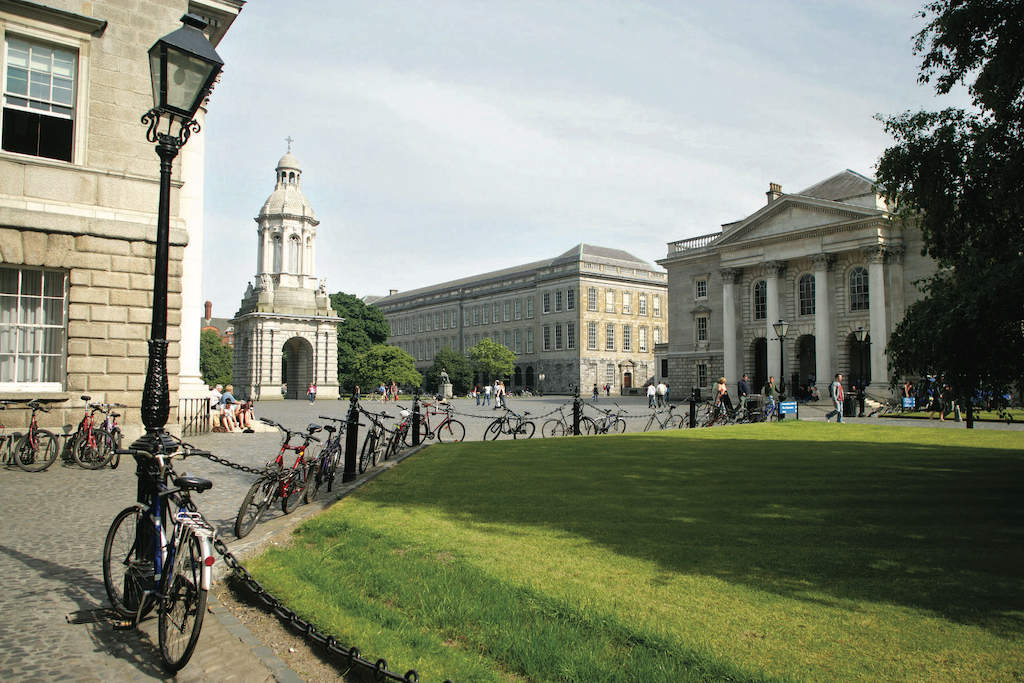
Trinity College, Dublin
The newly launched Trinity Trails campus walking tours guide visitors through the college’s rich history. The tour is a 45-minute guided or self-guided loop of the college grounds that aims to uncover the institution’s hidden gems and give you an insight into student life.
It takes you to fascinating spots like the Old Anatomy Museum, the Rose Garden and the Zoological Museum. The self-guided option includes immersive 360 tours and AR experiences that bring some of the college’s famous artefacts to life.
If you really want to dive into Trinity’s history, continue your experience with the Book of Kells and Old Library exhibition. With so much to see, the best option is to slow down and absorb the atmosphere of this extraordinary place.
Need to know
A major restoration project of the Old Library is underway but visitors can still visit Gaia in the Long Room and the Book of Kells Experience remains open.
Online booking is strongly recommended for entry to both the Book of Kells and Old Library exhibition and guided tours.
There are several cafés and restaurants around the Trinity campus, including The Buttery restaurant, the Perch Café and the Pavillion Bar, a particularly popular spot with students and locals on a sunny day.
If you want to discover more about Ireland’s heritage and culture, make your way to the nearby National Gallery of Ireland, the Museum of Literature Ireland and Dublin Castle. The campus itself has a strong cultural pedigree – both the Douglas Hyde Theatre and Samuel Beckett Gallery have regular exhibitions and shows.

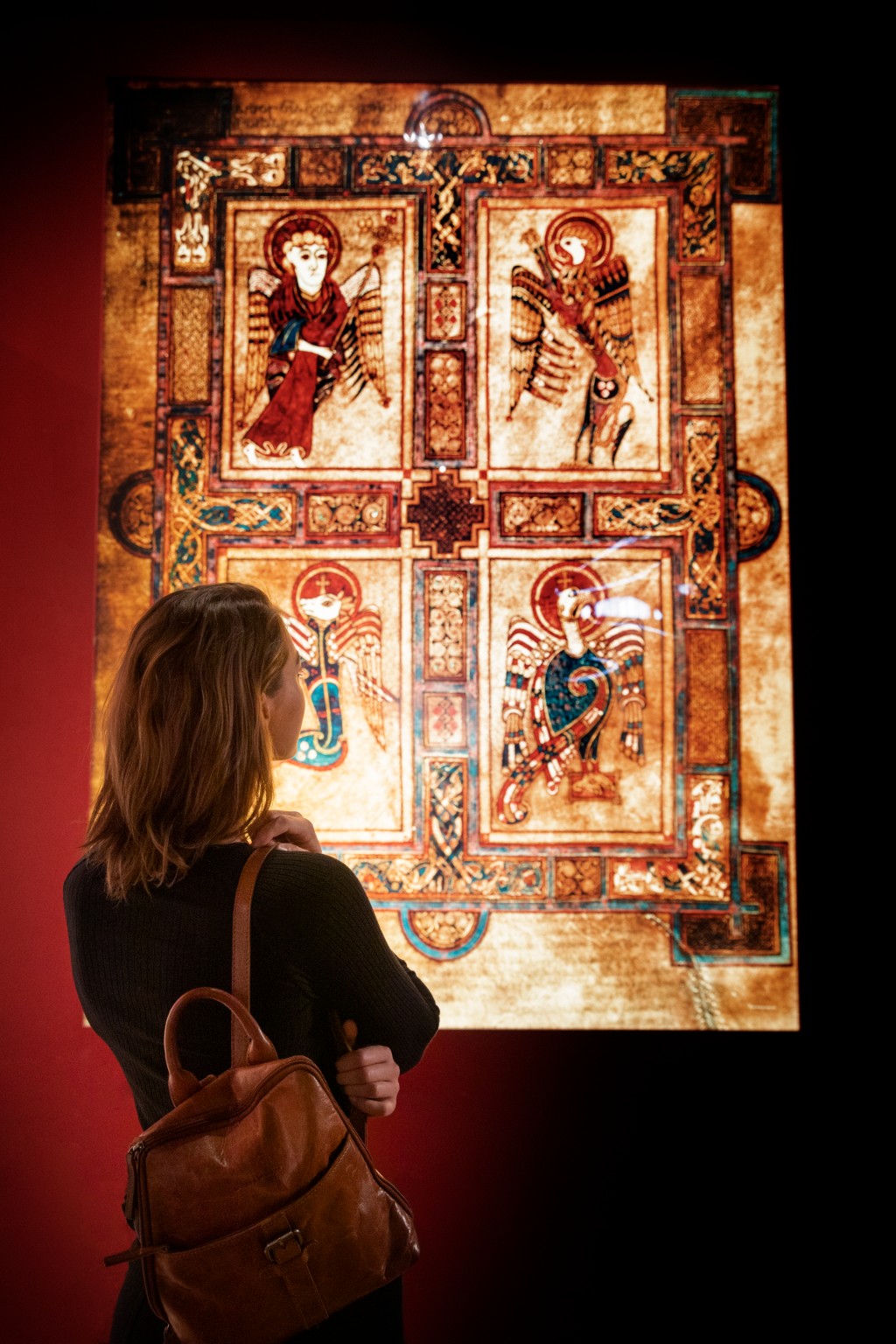
Book of Kells exhibition, Trinity College, Dublin





